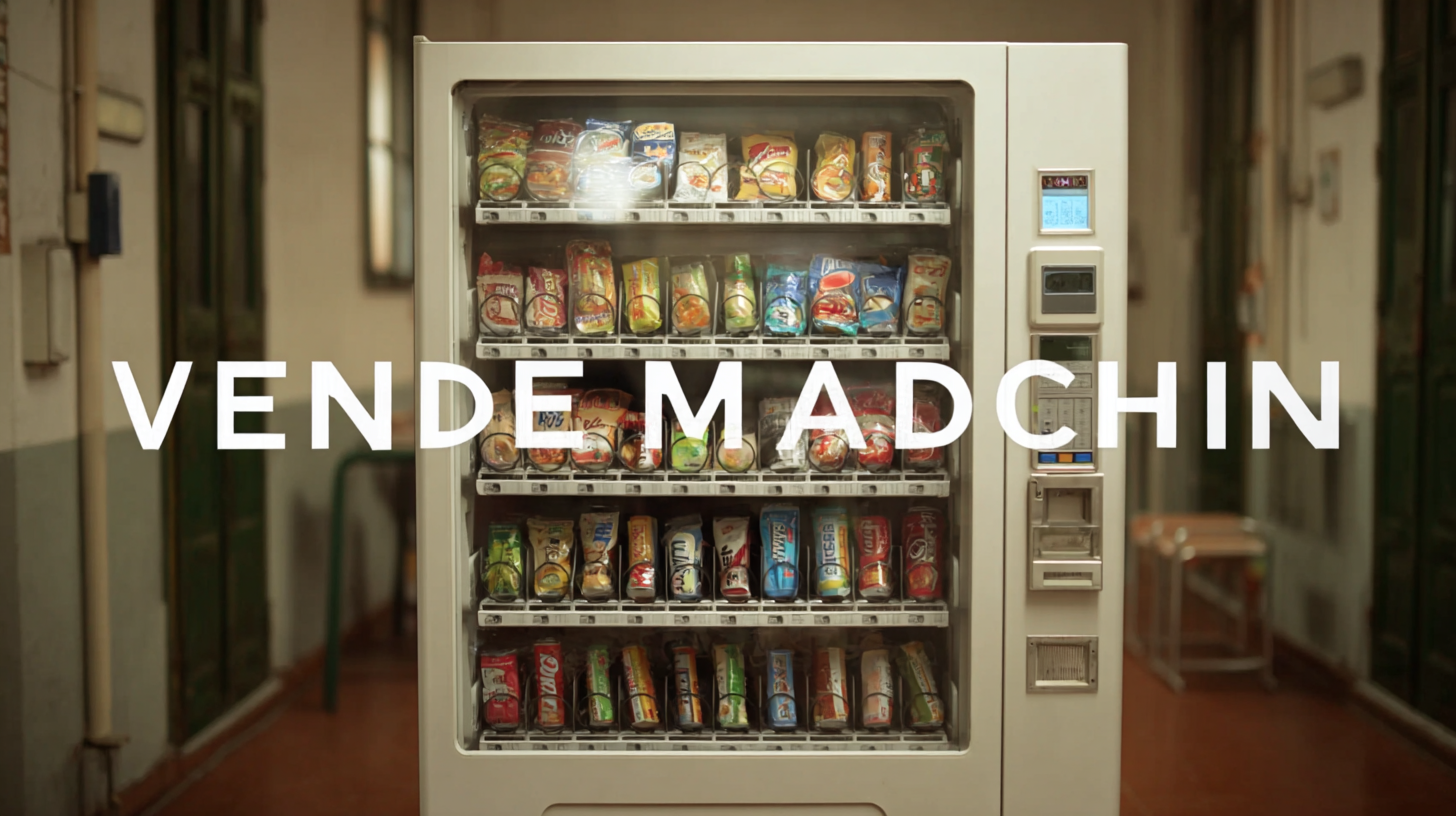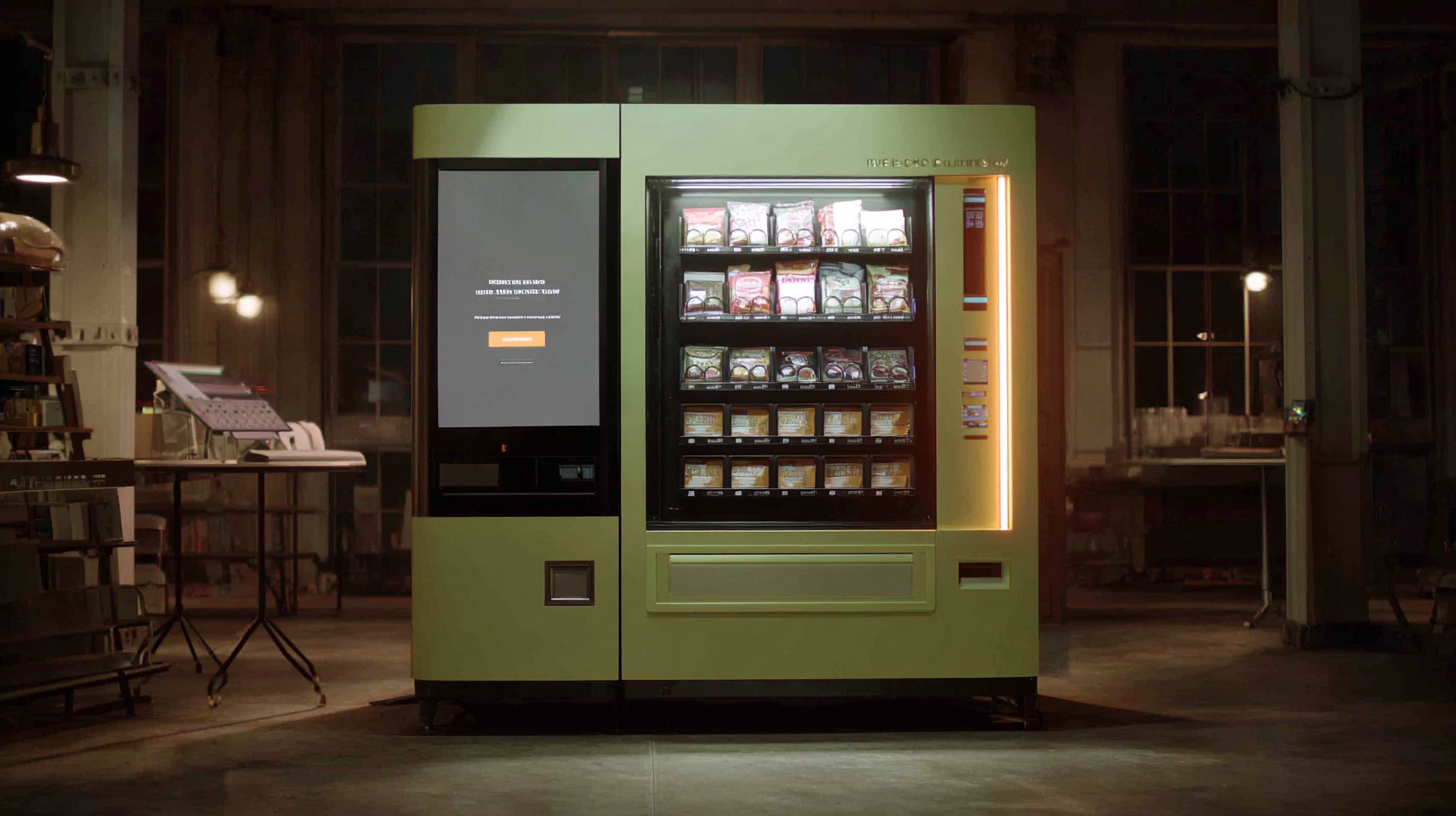Future Innovations in Meal Vending Machines Shaping 2025 Technology Trends
The evolution of Meal Vending Machines is poised to revolutionize the food and beverage landscape by 2025, introducing cutting-edge technology that aligns with changing consumer habits and preferences. According to recent market research from Grand View Research, the global vending machine market is expected to reach $25 billion by 2025, with a significant share driven by the growing demand for healthier and more convenient food options. As urbanization and fast-paced lifestyles continue to rise, Meal Vending Machines are increasingly becoming essential fixtures in public spaces, providing nutritious meals on the go. Moreover, innovations such as cashless payment systems, artificial intelligence for inventory management, and customizable meal selections are set to enhance user experience and operational efficiency.

This blog will explore the future innovations in Meal Vending Machines that are shaping technology trends in the industry and addressing the need for convenient yet healthy food solutions.
Future of Automated Dining: The Rise of Smart Meal Vending Machines
In the fast-evolving landscape of automated dining,
smart meal vending machines are poised to revolutionize how we access food by 2025.
According to a recent industry report by MarketsandMarkets, the global smart vending machine market is projected to grow from
$1.3 billion in 2023 to $3.9 billion by 2028, showcasing a compound annual growth rate (CAGR) of
24.1%. This surge indicates a growing consumer preference for convenient, cashless, and personalized dining options,
driven by advancements in technology and shifts in lifestyle.
These machines are not just about convenience; they're becoming increasingly intelligent.
Modern meal vending machines leverage artificial intelligence and IoT technology
to offer personalized meal recommendations based on individual dietary needs and preferences.
A study by TechNavio reveals that 55% of consumers are more likely to choose a vending machine
that allows for customization over a traditional one. As smart meal vending machines continue to enhance user experience through
interactive interfaces and real-time inventory monitoring, they are set to become a staple in urban areas, schools, and workplaces,
effectively bridging the gap between fast food and nutritional quality in our daily dining choices.
Integrating AI and Machine Learning for Personalized Meal Recommendations
As meal vending machines evolve, the integration of artificial intelligence (AI) and machine learning is set to revolutionize how consumers interact with these culinary dispensers. By leveraging vast amounts of data, these smart machines can analyze consumer preferences and dietary restrictions to offer tailored meal recommendations. For instance, if a customer frequently selects vegetarian options, the vending machine can prioritize similar meals when they approach the machine, enhancing the user experience while promoting healthier choices.

Moreover, the personalized nature of AI-driven meal suggestions extends beyond mere selections. These technologies can track nutritional goals and adapt offerings based on real-time feedback. For example, if a user inputs specific dietary goals, such as calorie limits or macro ratios, the machine can suggest meals that align perfectly with those objectives. This level of personalization not only caters to individual tastes but also empowers consumers to make informed decisions about their diet, fostering a more health-conscious society. The future of meal vending machines is not just about convenience; it's about creating a smarter and more personalized eating experience.
Sustainability in Meal Vending: Innovations in Eco-Friendly Packaging
As meal vending machines evolve, the focus on sustainability is becoming increasingly crucial. Recent data from the International Organization of Packaging suggests that the global eco-friendly packaging market is projected to reach $500 billion by 2027, driven by consumer demand for greener alternatives. With a growing awareness of environmental issues, meal vending machine operators are adopting packaging solutions made from biodegradable and recyclable materials. This shift not only addresses ecological concerns but also aligns with the preferences of the modern consumer, who prioritizes sustainability in their purchasing decisions.
Innovations in packaging technology are also paving the way for new solutions in meal dispensing. For instance, smart vending machines are integrating features that ensure meals are packaged in minimal yet efficient ways, reducing waste. A report by the Packaging Machinery Manufacturers Institute highlights that over 70% of consumers are willing to pay a premium for products with sustainable packaging. This indicates a lucrative opportunity for businesses investing in eco-friendly practices. By blending technology with sustainability, meal vending machines are poised to play a significant role in shaping a more environmentally friendly future while meeting the evolving demands of consumers.
Contactless Convenience: The Impact of Mobile Payments on Vending Machines
The shift towards contactless convenience is transforming the landscape of vending machines, with mobile payments at the forefront of this evolution. According to a recent report by Grand View Research, the global vending machine market is projected to reach $25.68 billion by 2025, with contactless payment options playing a crucial role in this growth. As consumers increasingly demand touch-free transactions, vending machines equipped with mobile payment technology are becoming ubiquitous, enhancing user experience through speed and safety.
One of the key benefits of mobile payments in vending machines is their ability to facilitate a seamless purchasing process. A study from Statista shows that nearly 60% of consumers prefer using mobile wallets for their purchases due to convenience. By managing payments via smartphones, users can quickly make transactions without worrying about cash or card handling, which is particularly appealing in a post-pandemic world.
**Tip:** To maximize consumer satisfaction, vending machine operators should ensure their machines are compatible with a wide range of mobile payment platforms, including Apple Pay, Google Wallet, and other popular apps.
In addition, incorporating digital displays that guide customers through the payment process can enhance user engagement. The transition to mobile payments not only streamlines the buying experience but also provides operators with valuable data on purchasing trends, allowing for targeted marketing strategies.
**Tip:** Regularly update your vending machine inventory based on the collected analytics to meet changing consumer preferences and increase sales.

Trendy Meal Options: How Vending Machines are Adapting to Dietary Preferences
As consumer dietary preferences evolve, vending machines are rapidly adapting to meet these changing demands. A recent report from the International Vending Alliance highlights that 64% of consumers are seeking healthier meal options when purchasing from vending machines, driving manufacturers to innovate beyond traditional snack offerings. This shift toward health-conscious eating is reflected in the increasing availability of plant-based meals and gluten-free alternatives, catering to diverse dietary restrictions and preferences.
Moreover, convenience plays a crucial role in this transformation. The market research firm Allied Market Research projects that the global smart vending machine market will reach $1.4 billion by 2025, fueled by technological advancements that allow machines to offer personalized meal recommendations based on consumer data. This personalization is not only enhancing user experience but also ensuring that machines serve trendy meal options that resonate with evolving nutritional trends. With the integration of AI and mobile technology, consumers can now access vending machines that offer tailored meal selections, ensuring that convenience never compromises nutrition.
